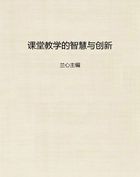14. Liberty belongs not to the will. If this be so, (as I imagine it is,) I leave it to be considered, whether it may not help to put an end to that long agitated, and, I think, unreasonable, because unintelligible question, viz. Whether man's will be free or no? For if I mistake not, it follows from what I have said, that the question itself is altogether improper; and it is as insignificant to ask whether man's will be free, as to ask whether his sleep be swift, or his virtue square: liberty being as little applicable to the will, as swiftness of motion is to sleep, or squareness to virtue. Every one would laugh at the absurdity of such a question as either of these:
because it is obvious that the modifications of motion belong not to sleep, nor the difference of figure to virtue; and when one well considers it, I think he will as plainly perceive that liberty, which is but a power, belongs only to agents, and cannot be an attribute or modification of the will, which is also but a power.
15. Volition. Such is the difficulty of explaining and giving clear notions of internal actions by sounds, that I must here warn my reader, that ordering, directing, choosing, preferring, &c., which I have made use of, will not distinctly enough express volition, unless he will reflect on what he himself does when he wills. For example, preferring, which seems perhaps best to express the act of volition, does it not precisely. For though a man would prefer flying to walking, yet who can say he ever wills it? Volition, it is plain, is an act of the mind knowingly exerting that dominion it takes itself to have over any part of the man, by employing it in, or withholding it from, any particular action. And what is the will, but the faculty to do this? And is that faculty anything more in effect than a power; the power of the mind to determine its thought, to the producing, continuing, or stopping any action, as far as it depends on us? For can it be denied that whatever agent has a power to think on its own actions, and to prefer their doing or omission either to other, has that faculty called will? Will, then, is nothing but such a power. Liberty, on the other side, is the power a man has to do or forbear doing any particular action according as its doing or forbearance has the actual preference in the mind; which is the same thing as to say, according as he himself wills it.
16. Powers, belonging to agents. It is plain then that the will is nothing but one power or ability, and freedom another power or ability so that, to ask, whether the will has freedom, is to ask whether one power has another power, one ability another ability; a question at first sight too grossly absurd to make a dispute, or need an answer.
For, who is it that sees not that powers belong only to agents, and are attributes only of substances, and not of powers themselves? So that this way of putting the question (viz. whether the will be free) is in effect to ask, whether the will be a substance, an agent, or at least to suppose it, since freedom can properly be attributed to nothing else. If freedom can with any propriety of speech be applied to power, it may be attributed to the power that is in a man to produce, or forbear producing, motion in parts of his body, by choice or preference; which is that which denominates him free, and is freedom itself. But if any one should ask, whether freedom were free, he would be suspected not to understand well what he said; and he would be thought to deserve Midas's ears, who, knowing that rich was a denomination for the possession of riches, should demand whether riches themselves were rich.
17. How the will, instead of the man, is called free. However, the name faculty, which men have given to this power called the will, and whereby they have been led into a way of talking of the will as acting, may, by an appropriation that disguises its true sense, serve a little to palliate the absurdity; yet the will, in truth, signifies nothing but a power or ability to prefer or choose: and when the will, under the name of a faculty, is considered as it is, barely as an ability to do something, the absurdity in saying it is free, or not free, will easily discover itself For, if it be reasonable to suppose and talk of faculties as distinct beings that can act, (as we do, when we say the will orders, and the will is free,) it is fit that we should make a speaking faculty, and a walking faculty, and a dancing faculty, by which these actions are produced, which are but several modes of motion; as well as we make the will and understanding to be faculties, by which the actions of choosing and perceiving are produced, which are but several modes of thinking.
And we may as properly say that it is the singing faculty sings, and the dancing faculty dances, as that the will chooses, or that the understanding conceives; or, as is usual, that the will directs the understanding, or the understanding obeys or obeys not the will: it being altogether as proper and intelligible to say that the power of speaking directs the power of singing, or the power of singing obeys or disobeys the power of speaking.
18. This way of talking causes confusion of thought. This way of talking, nevertheless, has prevailed, and, as I guess, produced great confusion. For these being all different powers in the mind, or in the man, to do several actions, he exerts them as he thinks fit:
but the power to do one action is not operated on by the power of doing another action. For the power of thinking operates not on the power of choosing, nor the power of choosing on the power of thinking;no more than the power of dancing operates on the power of singing, or the power of singing on the power of dancing, as any one who reflects on it will easily perceive. And yet this is it which we say when we thus speak, that the will operates on the understanding, or the understanding on the will.















